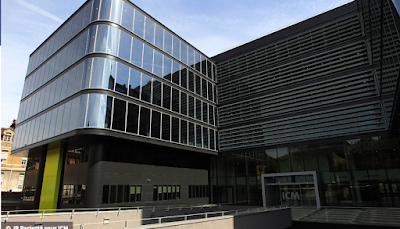Reflections on the Neuroethics Network Conference in Paris
By Thomasine Kushner
*Editor's Note: Tomi Kushner is co-chair with Yves Agid for the Annual Neuroethics Network Conference in France. She had these reflections to offer. The remainder of the posts this week will feature student reflections on various sessions in the conference. Enjoy!
The 3rd Neuroethics Network conference took place, June 29-July 1, 2016 hosted by ICM (Institut du Cerveau et de la Moelle épinière), Paris’ renowned Brain and Spine Institute. This annual conference brings together researchers, scholars and clinicians in neuroscience, neurology, psychiatry, and law to foster dialogue and interdisciplinary collaboration with regard to the ethical issues generated by advances in brain science.
A theme of the Neuroethics Network is that in order for neuroethics to be effective on an increasingly broader, more pluralized world stage, the field needs to “go global.” Contributing to a more international vision this year were delegates from: Argentina, Australia, Canada, France, Germany, Ireland, New Zealand, Serbia, Switzerland, The Netherlands, United Kingdom, and USA.
Echoing the diversity of the geographical representation was the wide variety of topics addressed, including: “Is the Brain Anything More than a 20-Watt Supercomputer?” (Yves Agid, ICM ,France), “Mosaics in Neuroethics: Piecing Together the Capacity Puzzle” (Joseph Fins, Weill Cornell Medical College, USA ) “How Smart Do We Want Machines to Be?” (John Harris, University of Manchester, United Kingdom) “Nonreductive Approaches to Human Neuroscience and the Care of Severe Brain Injury” (Grant Gillett, Otago Bioethics Centre, New Zealand).
A highlight of the meeting was the traditional “Cinema du Cerveau,” which shows a commercial film, followed by a panel commenting on the neuroethics dilemmas raised. This year the film was “Limitless,” in which “smart drugs” offer enhanced mental acuity but, as the plot unfolds, produce unforeseen consequences.
Emory University played a prominent role in the film session with Karen Rommelfanger, of the Neuroethics Program in the Center for Ethics, on
the panel and 21 Emory University students participating in the audience
discussion. Many of the students also continued their questions
throughout the next day and took advantage of the opportunities to speak
with our esteemed colleagues during the breaks.
The entire program and the roster of excellent talks can be seen here.
Introduced for the first time at a bioethics meeting were Electronic Posters, displayed on TV monitors throughout the meeting and to be posted on the Neuroethics Network website (under construction) for the coming year. Plans are already underway for next year’s Neuroethics Network meeting, June 19, 20, 21 2017, and E-Poster submissions are warmly welcomed.
The Neuroethics Network also heralded the establishment of “Clinical Neuroethics,” a new annual issue of “CQ the Cambridge Quarterly of Healthcare Ethics.” The first issue will make its debut in October 2016. Recognizing that the aim of brain science is to improve patient care, CN will serve as a forum for discussing how findings in the lab should best be applied to the real world of patient care. Thomasine Kushner serves as Editor and James Giordano as Associate Editor.
For information on the Neuroethics Network meeting in Paris, 2017, and Clinical Neuroethics, contact kushertk@gmail.com





Comments
Post a Comment